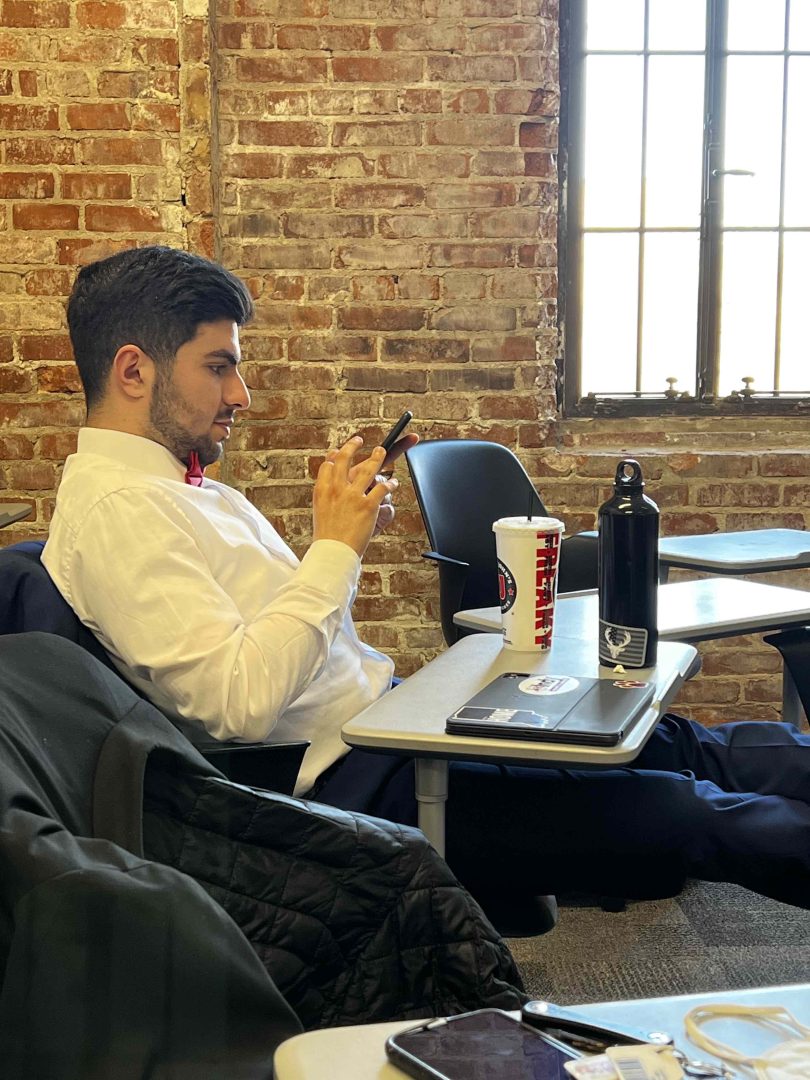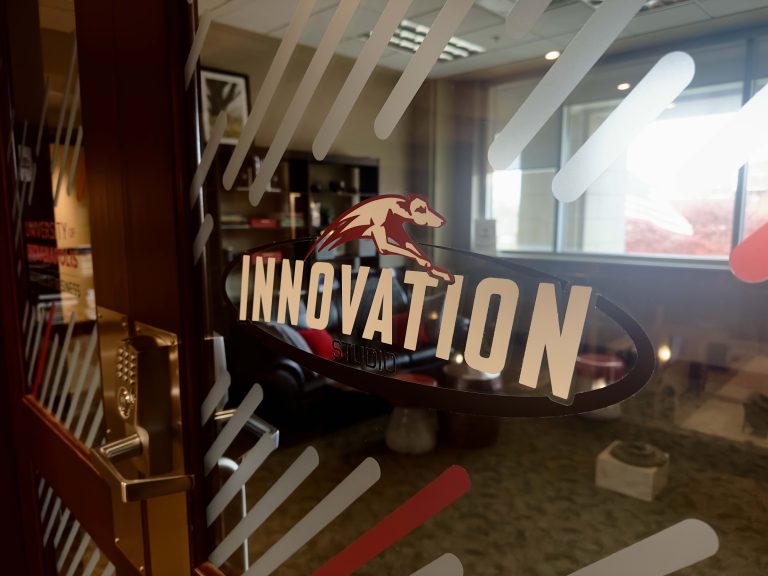Correction April 7, 2022 at 12:22 p.m.: In an earlier version of this article it was stated that Charbel Harb had competed in the International Public Debate Association Novice division. Harb competed in and won the Novice National Forensic Association tournament IPDA event. This article has been been updated to reflect the correct information.
The Novice National Forensic Association (NNFA) tournament is an opportunity for first year competitors to compete against other novices on a national stage, according to a letter from NNFA Executive Director Matt Delzer. This year, the University of Indianapolis Forensics Speech and Debate team competed in the NNFA tournament, where freshman human biology major Charbel Harb was awarded as IPDA Event Champion. Delzer said in the letter this tournament is focused on pedagogy and supporting new students, coaches and programs within the field of speech and debate. Harb, having no experience in formal debate competitions, said the biggest obstacle he had to overcome was not that he had no experience, but that English was his third language.
“I used to get very much blocked on specific words because you need to try to find the exact word that would land what you need to say,” Harb said. “And English being my third language is not your best friend here. So it took me some time to adapt to flowing fast in a very small time manner in English.”

According to Harb, good training and constant support from his coach, Raviteja Suryadevara, paired with critical improvements made throughout his debate season was what secured him the win. Harb said that he is now capable of changing the flow of his debate on the spot, something that he attributes to Suryadevara’s coaching.
“My coach is a very big part,” Harb said. “He is leaving at the end of the semester and I’m really stressed about getting my new coach…. [The new coach is] an international med student, which is the same as [what I will be in the future.] So we have this connection that we understand each other very fully.”
Suryadevara said he was a previous student of Assistant Professor and Director of Forensics Speech and Debate Program Stephanie Wideman at Wayne State University, who asked him to help start the program at UIndy and coach the team in their first year. He said that coaching this team was his first experience coaching speech and debate and it posed a unique learning curve for him. In the case of Harb, Suryadevara said he had limited experience with constructing structured and formal arguments in English. When he arrived in the United States, the formal English training he had was through taking dictation courses in Lebanon, but he was at the conversational level, according to Suryadevara.
“ … He [could] talk about a lot of things, but a lot of definitions and words like we know, he needed to be taught everything all over again when he came here. He didn’t really have an understanding of how our government’s process works because he’s from a different country,” Suryadevara said. “So working him through the whole process of how laws are made, how courts work, all that stuff was kind of a steep climb for him more so than me … He was a really smart kid. He had a lot of great ideas about different ways of delivering arguments, but it’s already pretty nerve-wracking on a stage, giving an argument and debating someone and it’s even more difficult to do that when you can’t find the words to say what you want to say, and that was what we were working on initially.”
Throughout Harb’s and Suryadevara’s time working together, Suryadevara said the two settled on a common goal: winning a tournament, or even a single debate, by the end of the year would be a success in their book. Suryadevara said that they were unable to accomplish their goal until they got to the national tournament where the first tournament win for Harb just so happened to be his championship title. Harb’s progression, in terms of wins and losses, could be illustrated by a long horizontal line and then a straight line up at the end of the year, which is seemingly inexplicable, according to Suryadevara.
“I think at the end of the day, it is a learning experience for everyone,” Suryadevara said. “As much as we like to brag about winning a national championship, I think the focus really here is making sure students develop the skills to critically look at arguments, moving forward into their careers, wherever they may end up and being able to construct and deliver a structured argument.”
Harb said he learned about Speech and Debate through happenstance when he was sifting through UIndy’s various websites. When he found the team’s website, he said he was immediately very interested.When Harb joined the team, he said he was welcomed by a constructively competitive team and that pushed and helped each other to get better.
“… Just give it [speech and debate] a try as I gave it a try …,” Harb said. “You might not start very well–I didn’t. It’s just about one thing to improve.”








